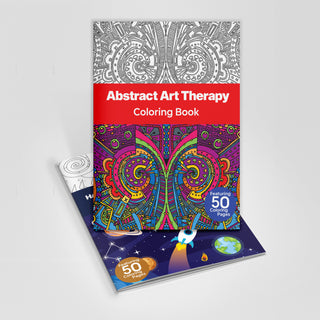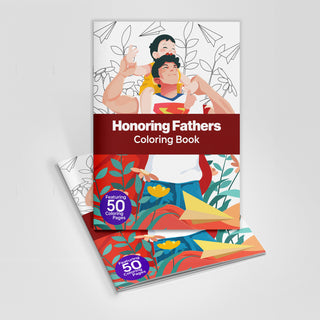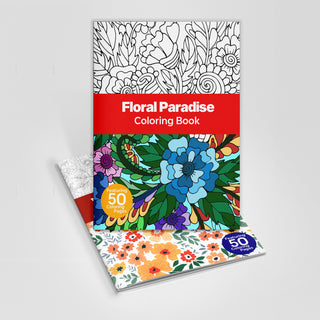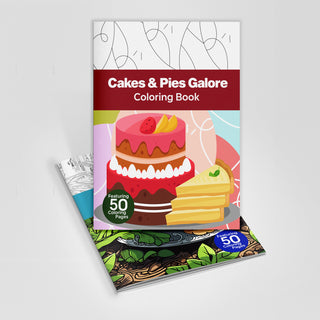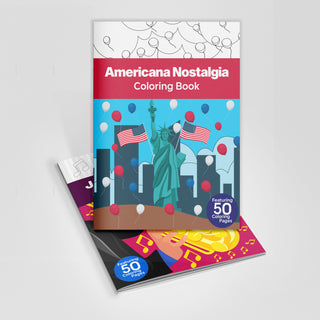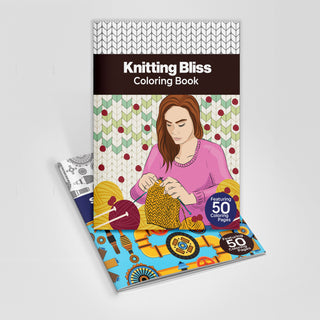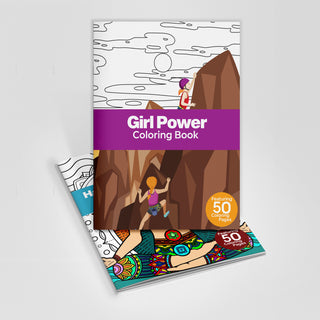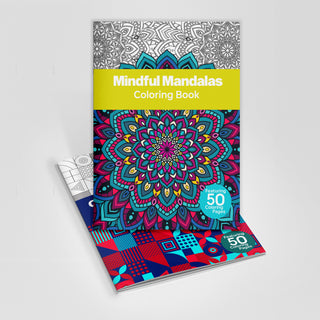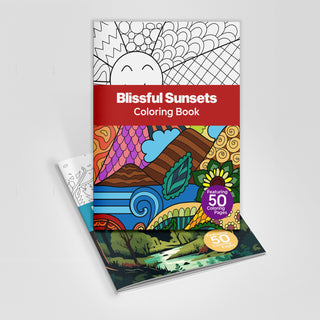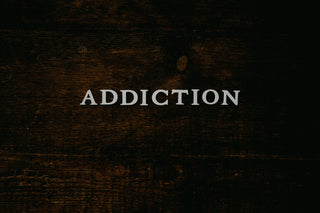Addiction is something that many people struggle with. We can be addicted to any number of different sorts of things, from alcohol and drugs to sugar and nicotine. Journal prompts for successful addiction recovery can offer valuable insights and support on the path to healing.
An addiction to video games is something that is somewhat recent in our society and is particularly seen among those in their teen years right into early adulthood.
I actually have a son who is addicted to video games. When he first talked to me about it, I thought, how could someone be addicted to video games?!
I didn’t take it seriously, but video game addiction is real.
There are stories of gamers who refuse to go to the bathroom when they need to, or who will not stop playing in order to eat.
Like other addictions, an addiction to video gaming can have serious consequences to a person’s health and their ability to function in life.
This article offers categories of journal prompts which can help people with an addiction work through the what, the why, and the how of their addiction, and get on the road to recovery.
1. Journal Prompts To Start Your Journey
Beginning the journey to face an addiction and start dealing with it can be scary.
You may have been lying to yourself for some time, pretending that your addiction wasn’t real.
These prompts can help. Take a look at the list to find prompts that help you think about yourself, for starters.
What do you like about yourself? Are there aspects of yourself that you don’t want others to find out about?
One of the prompts has you draft a list of everything in your life you’d like to say “Yes” to.
Dealing with an addiction is not about beating yourself up for what you’ve been doing, it’s about visualizing the person you want to be, and the kind of fulsome life you want for yourself and the people in your life.
You can get there. Take the first step.
RELATED: 130 Fabulous Journal Prompts For Teens For Resilience And Interest
Journal Prompts To Start Your Journey
1. “Identify the last mistake you made, that you feel ashamed about. What did you learn?”
2. “Write down the words you most want to hear someone say to you right now.”
3. “When were you the most confident? How did it feel? What made you feel that way?”
4. “Do you like who you are when no one is watching? How can you change that?”
5. “Identify something kind you’ve done for someone recently. How can you show the same love to yourself?”
6. “Write down 4 questions you want answers to. How will you get those answers?”
7. “Talk about your first love – it could be a person, a place, a pet, an experience.”
8. “What is something you’re tired of? Why?”
9. “List 5 things you couldn’t live without, and explain why.”
10. “When you meet new people, what do you want them to know about you?”
11. “What do you want to accomplish tomorrow?”
12. “Draft a list of everything in your life you’d like to say “No” to.”
13. “Write down as many details as you can about one memory you’ll never forget.”
14. “How have you seen yourself progress in the past week?”
15. “Draft a list of everything in your life you’d like to say “Yes” to.”
16. “What are you grateful for in your own life? For the next 10 minutes, write down as many as you can.”
17. “Write a chapter you would love to read in your own autobiography.”
18. “Write a goodbye letter to something in your life you want to eliminate during your recovery process.”
19. “Write down 3 things you do better than most people.”
20. “What does the word “freedom” mean to you?”
21. “What are the things in your life that make you smile?”
22. “After recovery, what’s one skill you’d love to learn?"
23. “How are you doing, right now? Don’t hold back.”
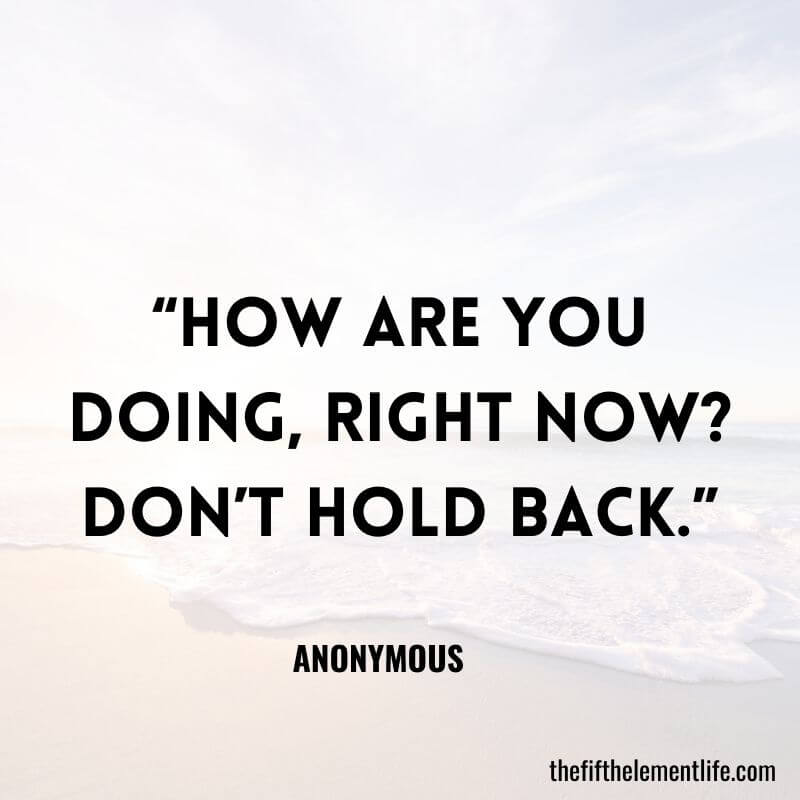
2. Journal Prompts For Optimistic Recovery
We can be our own worst enemy and dwell on negative thoughts.
Instead of being a cheerleader, our mind tells us again and again that we are weak, and that we can’t beat the addiction.
If negative self-talk is keeping you from moving forward and dealing successfully with your addiction, try responding to some of the prompts in this list.
Visualizing what sort of life you want and could have without the addiction is key.
By writing out this image of ourselves and our life, we create a positive picture that we can hold in our mind.
Once the positive image is there, we can return to it again and again, particularly when we are tempted.
Check out these prompts and begin your optimistic journey!
RELATED: 139 Reflective Journaling Prompts To Motivate And Inspire You
Journal Prompts For Optimistic Recovery
24. “What problem in my life seems unsolvable – and how can I tackle it today?”
25. “How do I feel about myself when I drink and/or use drugs?”
26. “Section: How old was I when I first used alcohol or drugs?”
27. “How can I be more loving to myself today?”
28. “Am I achieving my daily goals? If not, how can I do better tomorrow?”
29. “How could I’ve approached this situation differently this morning?”
30. “What was the best thing that happened today?”
31. “What’s my earliest memory of addiction and/or substance use?”
32. “What are five positive things in my life?”
33. “Write about a life without your addiction.”
34. “How can I shift the focus from me to someone else?”
35. “What did my life look like before addiction/use became a problem?”
36. “When did I first feel ashamed or guilty about my alcohol/drug use?”
37. “Who did I use them with?”
38. “When did the craving for alcohol or drugs start again after I used them? On the third day, at the end of the week?”
39. “What am I grateful for today?”
40. “In what ways have I tried to change my behavior?”
41. “Who’s my higher power as I understand him or her?”
42. “How long could I go without addiction or drug use before the urge to use set in?”
43. “How does it feel to no longer have control over my own body?”
44. “What can I do for myself to lift my spirits?”
45. “Can I remember when I first felt addicted to a substance?”
46. “What are three positive feelings I felt today?”
47. “Describe what you like about yourself.”
48. “What’s something new I learned about myself today?”

3. Journal Prompts To Heal Yourself
Addicts can get really down on themselves, and the further down they get the harder it is for them to see the light at the end of the tunnel.
But the fact is, everyone has positive traits. Instead of dwelling on the weaknesses in your character, look at all the good things.
Why not start with responding to this prompt?
The three things I do better than most people are…
It can also be really helpful to consider all of the things in your life that you are grateful for.
List things in your life that make you happy, and look at setting a goal for the next five years.
Make your response as detailed as you can as this will give you a more complete picture.
The clearer the picture, the more you can see it, work towards it, and believe in it.
RELATED: 148 Inspirational Quotes For Journaling To Get You Started And Help You Stay Motivated
Journal Prompts To Heal Yourself
49. “In the next year, one manageable goal I would like to accomplish is…”
50. “What relationships are most important to me, and what can I do to prioritize them?”
51. “Create a list of 10 things that helped me survive the past year.”
52. “The three things I do better than most people are…”
53. “What conversations do I need to have with whom to feel freer and truly sober?”
54. “What’s one goal I’d like to accomplish in the next year?”
55. “Think about your life and make a list of everything you would like to say No to.”
56. “How would I describe myself to someone who’s never met me?”
57. “Write about a time when someone was there for me or was there when I needed them most. How did it feel to know someone was there for you?”
58. “What’s an irrational fear I’ve, and how do I keep it under control?”
59. “What’re positive affirmations that help me feel strong?”
60. “If I’d to narrow down my biggest trigger to one word, what would it be and why?”
61. “List the most difficult moments of your addiction and how you overcame them.”
62. “Write down five things you would not want to live without and explain why.”
63. “Think about your life and make a list of everything you would like to say Yes to.”
64. “List five things you are good at.”
65. “The happiest moment in my life was…”
66. “What’ve I learned about myself since being in substance abuse treatment?”
67. “If I were asked to give a motivational speech to people struggling with addiction, what advice would I give them?”
68. “What would it be if I could make peace with one event from my past?”
69. “How can I better support and appreciate my loved ones?”
70. “Write down ten things that make you smile.”
71. “If my body could talk, it would say…”
72. “What new hobbies or special interests have I discovered since being in your addiction recovery journey?”
73. “What’re the most important events in my life that have made me who I’m today? Why are they important to me?”
74. “Make a list of the things you are grateful for right now.”

75. “In the next five years, one manageable goal I would like to accomplish is…”
76. “How would I explain addiction to someone who’d never experienced it?”
77. “How did you deal with stress and worry when you were younger?”
78. “I could not imagine living without…”
79. “What does my ideal day look like?”
4. Journal Prompts To Encourage Recovery
Once you have started on the journey to recovery, it can be challenging to stay the course.
The prompts in this category help with encouragement to keep on the path to beating the addiction.
It is important to keep reminding yourself of the progress you’ve made and of the goal you are trying to attain.
The goal is not only to beat the addiction, but to achieve everything that goes along with that.
You want to keep at the front of your mind all the positives that you have already attained.
Be specific in your response and do take the time to really think about how that aspect makes your life better.
Do you have more time for friends and family? How do you spend that time with them and how does that make your life better?
Do you feel physically and mentally healthier? In what ways? Why are these things important to you?
Stay the course!
RELATED: 150 Self-Love And Positive Self-Esteem Journal Prompts To Shine!
Journal Prompts To Encourage Recovery
80. “What is a secret you have that could trigger a relapse? Write it down.”
81. “Do you remember the moment you thought “I can’t take this anymore?” Where were you? What were you thinking? What were you feeling?”
82. “Write a letter from your addiction to you. What is its voice like? What is it asking of you? How does it manipulate you?”
83. “What healthy substitutes can replace my drug of choice?”
84. “Write 5 things you’re ashamed of as a result of your addiction. Next to them, write 5 ways you can make up for them as a sober person.”
85. “Imagine your addiction claimed your life. What would your obituary say?”
86. “What feelings are difficult to navigate sober? What healthy tools do you have to process them?”
87. “Who are you becoming? What steps are you taking to get there?”
88. “Other than yourself, who is the one person that helped you most in recovery?”
89. “Write a letter from you to your addiction. What anger do you need to express? What resentments do you have? What would you say to fight back against it?”
90. “Where is the darkest place your addiction took you to?”
91. “What advice would the you in recovery give the you in active addiction?”
92. “Why do I never want to return to the person I was in active addiction?”
93. “Other than yourself, who is someone you deeply hurt by your addiction? If you could say anything to them, what would you say?”
94. “Describe yourself in active addiction in three words, then describe yourself today in three words.”
95. “What was the loneliest moment you can remember in active addiction?”
96. “What are three things you have today that you didn’t have in active addiction?”
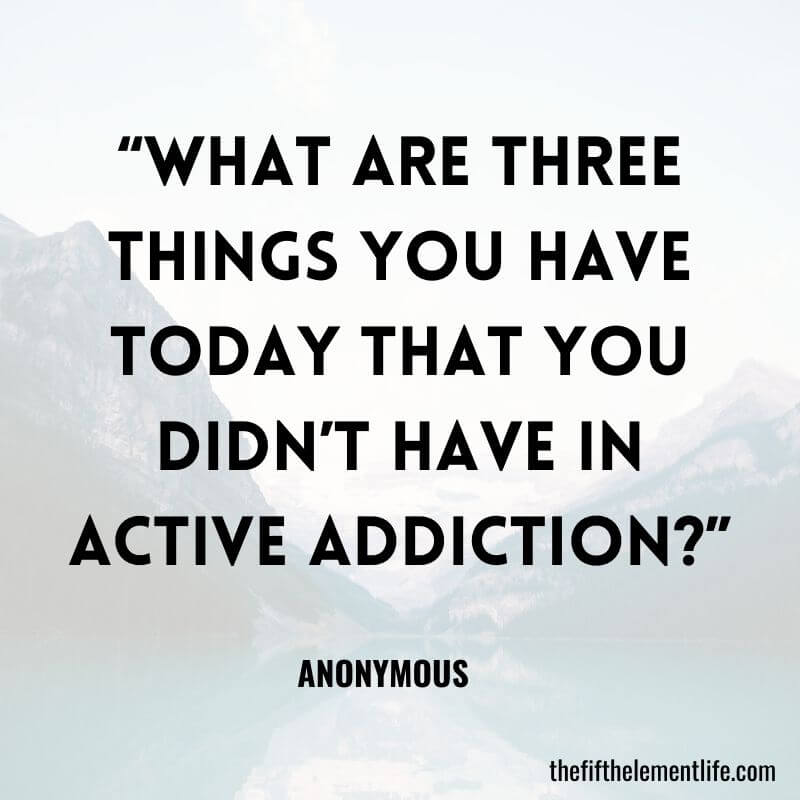
5. Journal Prompts To Give Up Addiction
When you are giving up an addiction it is important to not only think about the good things you want out of your new life, but to not forget the negatives that resulted from that addiction.
An addiction affects our lives and those around us. It can bring pain and suffering in so many ways.
My son’s addiction to video gaming meant that he was depriving himself of sleep, he wasn’t eating properly, he wasn’t spending time with his partner, and he wasn’t moving forward with his career.
Recognizing the debilitating nature of your addiction can motivate you to take action, but also to stick with it.
Thinking and writing about one or more things you have in your life now that you have recovered from your addiction can keep those wonderful things you are so grateful to have in your life now front and center in your mind.
RELATED: 155+ Deep Question Journal Prompts To Connect With Yourself
Journal Prompts To Give Up Addiction
97. “What pain was I trying to cover with my addiction?”
98. “If you could pick one song to describe your life in sobriety, what would it be and why?”
99. “Have you lost someone due to addiction? If you could write them a letter as a sober person today, what would you say?”
100. “If you could write a book about your life, what would it be called and why?”
101. “How do you think society stigmatizes addiction? If you could do anything, how would you break down that stigma?”
102. “Try hard to remember the last time you were withdrawing from your addiction. What did that desperation look like? How did it feel to be in your skin?”
103. “How did you try to hide your addiction? What lengths did you go to keep it a secret?”
104. “If you could pick one song to describe your life in active addiction, what would it be and why?”
105. “What is one thing you’ve gained in recovery that you’re terrified to lose?”
106. “What lies did your drug of choice tell you? How did it disguise them?”
107. “What programs or self-help resources would you suggest to someone who is trying to get sober? Why did they work for you?”
108. “If you could do anything for a career, what would it be? How would this not be possible in active addiction?”
109. “How does life feel more manageable as a sober person? Name three things you can easily do today that you couldn’t in active addiction.”
110. “What fear was I trying to run from with my addiction?”
111. “What is something you did under the influence of your drug of choice that you can’t imagine doing sober?”
112. “If you weren’t in recovery, where would you be right now?”
113. “Write a commercial for anti-(your drug of choice) using your own experience. Create a 30 second script to grab a viewer’s attention and help them get sober.”
114. “If you had to describe addiction to an alien, what would you say?”
115. “How can your story benefit someone struggling with addiction? What is one thing you could do today to help someone else?”
116. “When you looked in the mirror during active addiction, who did you see? When you look in the mirror as a sober person, who do you see?”
117. “What is one mantra you want to have to tell yourself when you’re thinking about relapsing? What words or affirmations do you need to hear in that moment?”
118. “If you had to cast the movie of your life, who would you pick to play you in active addiction and who would play you as a sober person? Why?”
119. “What did you lose as a result of your addiction? This can be a person, a job, or even your sense of self."
120. “Sometimes, our drug of choice can begin to feel like our friend. What lies did you tell yourself to defend your addiction?”
121. “What are five of your favorite things about yourself? How can those things be taken away by a relapse?”
122. “Addiction is largely mental, but physical addiction is a debilitating part of the disease. How did your body feel during active addiction? What health issues did you experience?”
123. “Sometimes friends and family members don’t understand the deadliness of addiction. What’s your plan if they try to convince you that you don’t need recovery?”
124. “Why is addiction a disease? What would you say to people who argue that it is a choice?”
6. Journal Prompts To Start Recovery
Recovery is a combination of visualizing the positive goal and recalling the negative past.
If you are just starting your recovery, the temptation to give in to your addiction may be very strong.
Think about all the negatives that were part of your addiction. Be precise and thorough.
Choose prompts from the list below to keep the negative consequences of your addiction in your mind.
Journaling about these things will keep you motivated to get them out of your life.
RELATED: 165 Thoughtful Christian Journal Prompts To Help You Grow Spiritually
Journal Prompts To Start Recovery
125. “We impact everyone around us with our addiction. Describe how addiction is a family disease, even if other family members don’t struggle with addiction.”
126. “Our addiction can rob us of our memories. What is one moment you wish you could get back? How can you recreate that memory today?”
127. “What is your favorite quote? How does it relate to your recovery?”

128. “People who are unfamiliar with addiction often reduce an addict down to their disease. People in recovery are so much more than their drug of choice. How would you explain this?”
129. “Many of us lose our identity to our addiction. What is one thing you’ve learned about yourself in recovery that you didn’t know before?”
130. “Tons of celebrities have struggled with and overcame addiction. Write about your favorite celebrity in sobriety.”
131. “We go great lengths to get our drug of choice. Sometimes, we’re reluctant to do the same in recovery. What ways can you apply your determination in addiction to your journey with recovery?”
132. “We become unrecognizable to ourselves in our addiction. What parts of your real self started to resurface during recovery?”
133. “If you were the head of marketing for a “recovery starter pack”, what five things would you include in the kit? What would the commercial say?”
134. “Many of us carry the guilt of our behavior during active addiction with us for much too long. What are five things you are proud of in your recovery that can help you combat those thoughts?”
135. “If someone has cancer, we don’t blame them for their disease. Explain the ways that addiction is like a terminal illness.”
136. “Medical professionals agree there is no known cure for addiction. Imagine if there was one. Would you go back? Why or why not?”
137. “Try to remember the worst location you ended up in as a result of your addiction. Describe what it was like, how you felt, and why you never want to go back there.”
138. “A lot of recovery is about unlearning. We have to let go of previous beliefs that no longer serve us. What is the most important thing you “unlearned” through your recovery?”
139. “Recovery communities often tell us to change the people, places, and things we were accustomed to in our addiction. How have you changed these things in recovery?”
140. “What are you really missing by not using your drug of choice? When you write it down, does it seem logical?”
141. “Some people are ashamed to share their addiction journey. Why are we so afraid to tell the truth?”
7. Journal Prompts To Discover Your Recovery Goal
Whenever we want to make change in our lives it is necessary to have a goal. This is absolutely the case when you are recovering from an addiction.
The overall goal is to beat the addiction, but there are many other things that play a part in that goal.
Journaling is a marvelous way to explore all of the things you want to get out of being addiction-free.
Choose prompts that you connect with and reflect on how those ideas specifically relate to your life.
The more specific you are in your goals the better.
RELATED: 150 Identity Journaling Prompts: Uncover The Real You
Journal Prompts To Discover Your Recovery Goal
142. “The word “addict” can be jarring. No one wants to label themselves after something they’re not proud of. What’s a word or phrase that could be used to replace “addict” and why?”
143. “When I used my addiction to solve my problems, did they ever accomplish that goal? How did they worsen a particular problem?”
144. “What tiny moments in your day do you appreciate now that you didn’t while in active addiction?”
145. “How has your mental health changed since your recovery journey started? If you relapsed, what would happen to your mental health?”
146. “What is one piece of advice that you’ve received that you’ll never forget? Who said it? How does it apply to your recovery?”
147. “What is a false promise you made during active addiction? How can you fulfill that promise today?”
148. “Personification is the attribution of a personal nature or human characteristic to something nonhuman. Addiction is ugly. Describe what yours would look like if it were a person.”
149. “What three qualities do you have now that you didn’t in your addiction? Trustworthiness? Integrity? Confidence? Explain how recovery has given these to you.”
150. “What can you give yourself in sobriety that you couldn’t give yourself in recovery? Comfort? Peace? Write how this is possible.”
151. “Insanity is doing the same thing and expecting different results. List five ways your addiction was the definition of insanity.”
152. “What has been the hardest part of recovery? How do you face this obstacle head on? If you relapsed, do you think you would be able to do it over again?”
153. “Our addictions start out as a release but quickly turn into a job. Can you remember when your addiction stopped being fun?”
154. “What parts of you were your addiction, not you?”
155. “Write down five realities of your life in addiction. Write five realities of your life in sobriety. Write five dreams for your future in sobriety. How do they compare?”
156. “What small things about the world have you found beauty in since being in recovery?”
Frequently Asked Questions
What Are Journal Prompts For Successful Addiction Recovery?
Journal prompts for successful addiction recovery are thought-provoking questions or statements designed to guide individuals through the process of self-reflection and introspection.
These prompts encourage individuals to explore their thoughts, emotions, and experiences related to addiction, fostering personal growth and aiding in the recovery journey.
How Can Journal Prompts For Successful Addiction Recovery Contribute?
Journal prompts provide a structured way for individuals to delve into their thoughts and feelings, helping them gain insights into their triggers, behaviors, and motivations.
This self-awareness is crucial for identifying patterns and making positive changes, ultimately supporting a successful addiction recovery.
Can Journaling Replace Professional Addiction Treatment?
No, journaling is a valuable supplementary tool but not a substitute for professional addiction treatment.
While journal prompts can aid self-discovery, addiction recovery typically requires a combination of therapies, medical support, and counseling to address the physical, psychological, and emotional aspects of the addiction.
Are There Specific Journal Prompts For Different Stages Of Recovery?
Yes, journal prompts can be tailored to different stages of recovery. For early stages, prompts might focus on identifying triggers and exploring motivations. In later stages, prompts could encourage setting goals, celebrating milestones, and reflecting on lessons learned.
Continue Reading 👉: 189 Helpful Journal Prompts For Quality Relationships
